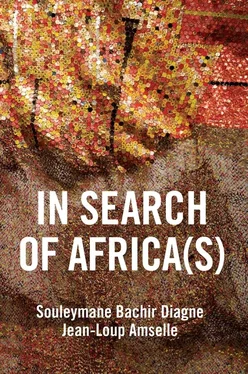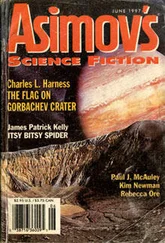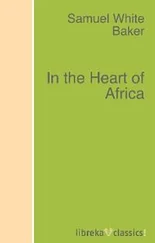Conversely, without practising the cowardly art of ducking and diving, but striking back whenever he deems it necessary, Diagne refuses to don what he calls ‘the livery’ of the ‘Afrocentrist, particularist and essentialist’ thinker (p. 138). He then fuels the discussion in a less agonistic way, but one that is just as radical as Amselle, proposing a total ‘decentring’, one which ‘reject[s] all centrisms’ (p. 142), but rather highlights branchings and connections, transfers, analogies and reciprocal influences between cultural places and intellectual fields that may be distant but are not distinct in space and time.
So let us wager that the publication of these conversations, which are often uncompromising but always stimulating, will spur other conversations.
Anthony Mangeon is Professor of Francophone Literature at the University of Strasbourg. He is the author or editor of several books on the literatures of Africa, the West Indies and the Black Americas in their relation to knowledge, including: La Pensée noire et l’Occident: de la bibliothèque coloniale à Barack Obama (Cabris: Sulliver, 2010), Postures postcoloniales (Paris: Karthala, Lettres du Sud, 2012), Anthropolitiques: Jean-Loup Amselle, une pensée sans concessions (Paris: Karthala, 2015), Crimes d’auteur: de l’influence, du plagiat et de l’assassinat en littérature (Paris: Hermann, Fictions pensantes, 2016) and L’Empire de la littérature: penser l’indiscipline francophone avec Laurent Dubreuil (Rennes: Presses universitaires de Rennes, Plurial, 2016).
1 1. Jean-Marc Moura, Littératures francophones et théorie postcoloniale (Paris: PUF, 1999).
2 2. Jean-Marc Moura and Jean Bessière (eds), Littératures postcoloniales et représentations de l’ailleurs: Afrique, Caraïbes, Canada. Conférence de littérature comparée de l’Université de la Sorbonne (Paris: Honoré Champion, 2000).
3 3. See Neil Lazarus (ed.), Penser le postcolonial: une introduction critique (Paris: Amsterdam, 2006), Marie-Claude Smouth (ed.), La Situation postcoloniale: les postcolonial studies dans le débat français (Paris: Presses de la fondation nationale des Sciences politiques, 2007) and Collectif Write Back (ed.), Postcolonial studies: modes d’emploi (Lyon: Presses universitaires de Lyon, 2013).
4 4. Edward Said, Orientalism (London: Penguin, 2003).
5 5. Bill Ashcroft, Gareth Griffiths and Helen Tiffin (eds), The Empire Writes Back: Theory and Practice in Post-Colonial Literatures, 2nd edn (London: Routledge, New Accents, 2002).
6 6. Gayatri Chakravorty Spivak, In Other Worlds (London: Routledge, 2006; first published in 1987).
7 7. Homi Bhabha, The Location of Culture (London: Routledge, 2004; first published in 1990).
8 8. Pascal Blanchard, Nicolas Bancel and Sandrine Lemaire (eds), La fracture coloniale: la société française au prisme de l’héritage colonial (Paris: La Découverte, 2005).
9 9. Jean-Loup Amselle, L’Occident décroché: enquête sur les postcolonialismes (Paris: Stock, 2008).
10 10. Jean-François Bayart, Les Études postcoloniales: un carnaval académique (Paris: Karthala, 2010).
11 11. Nicolas Bancel et al. (eds), Ruptures postcoloniales: les nouveaux visages de la société française (Paris: La Découverte, 2010).
12 12. See Souleymane Bachir Diagne, African Art as Philosophy: Senghor, Bergson and the Idea of Negritude, translated by Chike Jeffers (London: Seagull Books, 2011), p. 15.
13 13. ‘It is but natural that, in the study of the history of culture, our own civilization should become the standard, that the achievements of other times and other races should be measured by our own achievements. In no case is it more difficult to lay aside the Kulturbrille’ (‘The History of Anthropology’, in The Shaping of American Anthropology [Chicago: University of Chicago Press, 1989], p. 28). ‘Proud of his wonderful achievements, civilized man looks down upon the humbler members of mankind. He has conquered the forces of nature and compelled them to serve him. […] What wonder if civilized man considers himself a being of higher order as compared to primitive man; if it is claimed that the white race represents a higher type than all others. When we analyse this assumption, it will soon be found that […] the achievement and the aptitude for an achievement have been confounded’ (‘Human Faculty as Determined by Race’, in The Shaping of American Anthropology, pp. 221–2).
14 14. Santiago Castro-Gómez, ‘Le chapitre manquant d’Empire: la réorganisation postmoderne de la colonisation dans le capitalisme postfordiste’, Multitudes, no. 26, Autumn 2006, http://www.multitudes.net/Le-Chapitre-manquant-d-Empire-La/.
15 15. Kwame Anthony Appiah, In My Father’s House: Africa in the Philosophy of Culture (Oxford: Oxford University Press, 1992), p. 149.
16 16. Souleymane Bachir Diagne, Boole, 1815–1864: l’oiseau de nuit en plein jour (Paris: Belin, 1989).
17 17. George Boole, Les Lois de la pensée, translated by Souleymane Bachir Diagne (Paris: Vrin, 1992).
18 18. Souleymane Bachir Diagne, Islam et société ouverte: la fidélité et le mouvement dans la philosophie de Mohammed Iqbal (Paris: Maisonneuve et Larose, 2001).
19 19. Souleymane Bachir Diagne, Open to Reason: Muslim Philosophers in Conversation with the Western Tradition, translated by Jonathan Adjemian (New York: Columbia University Press, 2018).
20 20. Souleymane Bachir Diagne, African Art as Philosophy: Senghor, Bergson and the Idea of Negritude, translated by Chike Jeffers (London: Seagull Books, 2011).
21 21. Souleymane Bachir Diagne, The Ink of the Scholars: Reflections on Philosophy in Africa, translated by Jonathan Adjemian (Dakar: CODESRIA, 2016).
22 22. Daniel Arasse, Histoires de peinture (Paris: Gallimard, Folio Essais, 2006).
23 23. Diagne, African Art as Philosophy, pp. 11, 13 and 54.
24 24. Souleymane Bachir Diagne, Bergson postcolonial: l’élan vital dans la pensée de Léopold Sédar Senghor et de Mohamed Iqbal (Paris: CNRS Éditions, 2011). (An English edition, Postcolonial Bergson, translated by Lindsay Turner [New York: Fordham University Press, 2019], was in production as the current volume was going to press. [Translator’s note.])
25 25. Diagne, African Art as Philosophy, pp. 194–5.
26 26. Jean-Loup Amselle (ed.), Les Migrations africaines: réseaux et processus migratoires (Paris: Maspero, 1976).
27 27. Jean-Loup Amselle, Les Négociants de la savane: histoire et organisation sociale des Kooroko, Mali (Paris: Anthropos, 1977).
28 28. Jean-Loup Amselle, Psychotropiques: la fièvre de l’ayahuasca en forêt amazonienne (Paris: Albin Michel, 2013).
29 29. Jean-Loup Amselle, Islams africains: la préférence soufie (Lormont: Le bord de l’eau, 2017).
30 30. Jean-Loup Amselle, Branchements: anthropologie de l’universalité des cultures, 3rd edn (Paris: Flammarion, 2015).
31 31. Gregory Bateson, Steps to an Ecology of Mind: Collected Essays in Anthropology, Psychiatry, Evolution, and Epistemology (Chicago: University of Chicago Press, 1999).
32 32. Jean-Loup Amselle, L’Ethnicisation de la France (Paris: Lignes, 2011).
33 33. Jean-Loup Amselle, Les Nouveaux Rouges–Bruns: le racisme qui vient (Paris: Lignes, 2014).
34 34. Jean-Loup Amselle, Branchements: anthropologie de l’universalité des cultures (Paris: Flammarion, 2001).
35 35. Jean-Loup Amselle, Mestizo Logics: Anthropology of Identity in Africa and Elsewhere, translated by Claudia Royal (Stanford, CA: Stanford University Press, 1998).
36 36. In addition to L’Occident décroché (2008), see also the third part of Jean-Loup Amselle’s last book, Islams africains (2017), devoted to Diagne, or listen to the podcast of the debate in Lille in November 2014 and broadcast on France Culture in ‘Les Chemins de la connaissance’ (‘The Paths of Knowledge’), as part of a series of broadcasts and conferences on ‘African Thinkers’ (‘Penseurs d’Afrique (2/5): L’Afrique a-t-elle inventé les droits de l’homme’, https://www.franceculture.fr/emissions/les-nouveaux-chemins-de-la-connaissance/penseurs-d-afrique-25-l-afrique-t-elle-invente-les.
Читать дальше












